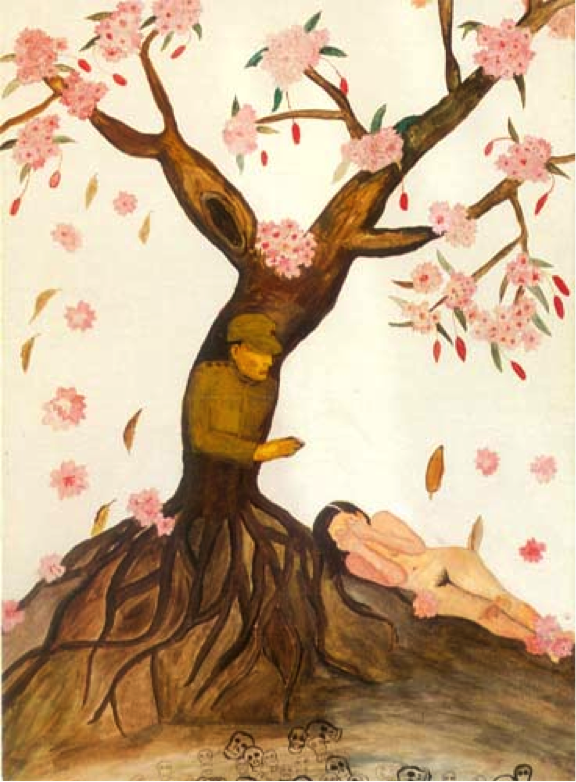Japan’s Comfort Women: Great timing for a final apology

As the 70th anniversary of the end of WWII approaches, we shall not forget that one of the major human rights violations committed during this conflict has not yet been officially recognized nor settled.
In fact, the “comfort women issue”, as it is commonly referred to, is still a point of contention for some of the states involved, such as Japan and South Korea.
“Comfort women” is a euphemism used to define the up to 200,000 women who were sexually enslaved by the Japanese Imperial Army during the Asia-Pacific War. Women from the Korean Peninsula, China, the Philippines, Indonesia, Taiwan and even Japan were coerced and forced to serve as sexual slaves at Japan’s Comfort Station System.
This system of militarily managed brothels clearly illustrates the use of sexual violence and slavery as a tool of war, since it was set up in order to control the increasing rape rates of local women by Japanese soldiers, avoid espionage, prevent the contagion of venereal diseases, and ensure that soldiers were distressed and could perform well in battle.
Although sexual violence has been considered an inevitable consequence of war for centuries, it has only received international attention very recently. In fact, it was not until the creation of the International Criminal Tribunal for the former Yugoslavia and the International Criminal Tribunal for Rwanda in the early 1990s, and until the constitution of the International Criminal Court in 2002, that both rape and sexual slavery became crimes against humanity.
However, this development of an international jurisprudence on the subject cannot be effective in combating sexual violence unless followed by efforts to change the reigning social attitudes towards the victims, especially those of marginalization, stigmatization and denial. This has been particularly important in the case of comfort women, as the survivors have had to deal with the rejection and disapproval of a patriarchal society that praised the values of chastity and morality.
The mobilization of comfort women’s organizations during the past decades and the celebration of the 2000 Women’s International War Crimes Tribunal on Japan’s Military Sexual Slavery have greatly contributed to empower women and to erode the existing social perceptions of the victims. Nevertheless, a successful fight of stigmatization requires an official recognition and apology by the Japanese government.
Even though Japan has responded to the mounting international pressure with the 1993 “Kono Statement”, which recognized the involvement of the military in the operation of comfort stations, and with the Asian Women’s Fund in 1995 (closed in 2007), a public-private project aimed at compensating financially comfort women as a way of atonement, the country has not given an official and unitary apology, as it has argued that all war claims were settled in the San Francisco Peace Treaty and in the postwar bilateral treaties.
The lack of a formal and unitary apology, together with Abe’s revisionist narrative, have questioned even more Japan’s commitment to the comfort women issue and to the defense of human rights. This has increased tensions with South Korea, especially after the Japanese government tried to revise the Kono Statement in June 2014 and four months later requested the United Nations to amend a 1996 report on comfort women made by former UN special rapporteur Radhika Coomaraswamy.
Since 2015 also marks the 50th anniversary of the normalization of the bilateral relations between Japan and South Korea, this year provides Japan with a unique opportunity to settle comfort women’s claims for justice and formal apology, and ease its relations with South Korea. In fact, South Korean President Park Geun-hye has stated that a formal Tokyo-Seoul one-to-one summit would be celebrated only after Japan shows a positive attitude towards settling the issue of comfort women.
A resolution of the comfort women issue could be very beneficial for Japan, since as Hornung (Associate Professor at the APCSS) argues “Abe should realize that the key to regaining Japan’s strength and revitalizing its future means settling its past once and for all.” Indeed, by issuing an official apology to the comfort women, Japan could not only improve its diplomatic relations with South Korea, but could also improve the country’s image abroad, particularly regarding its defense of human rights. Therefore, through an official apology and recognition, Japan could raise awareness of sexual violence and slavery, and establish a precedent for countries where sexual violence has been used as a tool of war and where survivors still face the stigmatization of their home societies.
Nevertheless, whether Japan will take or not this opportunity remains to be seen. The nationalistic trend of Japanese politics and the lack of international pressure on Japan to address the issue suggest that human rights are not a priority at the moment, and even if the defense of comfort women could positively contribute to Japan’s national interest in improving its self-image in the international arena, the cost of what Soh (Associate Professor of Anthropology at San Francisco State University) calls a “possible domino effect […] on other types of non-Japanese war victims” is too high to bear.
Alba Benito Miranda